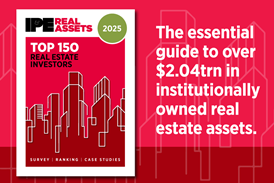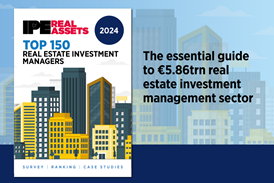The European Securities and Markets Authority (ESMA) has cast doubts over whether ‘passport’ rules under the Alternative Investment Fund Managers Directive (AIFMD) will be extended to non-EU countries in the near future.
Advice published by ESMA this morning has implications for non-EU alternative investment managers, which are currently unable to market to European investors under the AIFMD passport regime.
ESMA said there were “no obstacles” to extending the passport to Guernsey and Jersey, but it has “no definitive view” on the US, Hong Kong and Singapore due to “concerns related to competition, regulatory issues and a lack of sufficient evidence to properly assess the relevant criteria”. Switzerland would also become viable once “pending legislation” is passed, it added.
The advice to the European Commission could mean the passport regime will not be extended any time soon, although ESMA’s positive view of Guernsey, Jersey and Switzerland complicate the picture.
“This begs the question whether the Commission will want to adopt a delegated act for just these three countries or wait until there are more countries that meet the criteria,” said Jeff Rupp, director of public affairs at INREV, the European association for non-listed real estate investors.
ESMA said European Commission, Parliament and Council can now consider whether to extend the passport through a delegated act, but it added that they “may wish to consider waiting until ESMA has delivered positive advice on a sufficient number of non-EU countries”.
“The regulators’ strategic goal of greater investor protection conversely is resulting in an erosion of choice for investors.”
Melville Rodrigues
Matt Keogh, partner at Linklaters, said: “The widespread introduction of the passport still looks some way off.
“Jersey, Guernsey and Switzerland will clearly be happy that the marketing passport looks likely to be extended to them when it is introduced. However, those hoping that today’s announcement would provide more certainty on when introduction might occur will be a bit disappointed.”
For the time being, non-EU managers will need to continue to market to European investors via Europe’s private placement regime, the rules of which vary from country to country.
Melville Rodrigues, partner at CMS, suggested that European investors are not being adequately served by the national private placement regime.
“There are no indications that passporting is not working.”
Jeff Rupp
Rodrigues described the private placement regime as a “patchwork” and “interim solution” that was not currently working well for investors in certain countries, notably those in France and Germany.
“The current national private placement regime is reducing that choice of suitable investment product to investors in particular jurisdictions,” he said.
“The regulators’ strategic goal of greater investor protection conversely is resulting in an erosion of choice for investors.”
ESMA published the advice following a consultation period, during which it also sought to assess how well the passport regime had been functioning for EU-based managers. Its preliminary view is that not enough time has elapsed since implementation of the AIFMD to arrive at a “definitive assessment”.
“It’s too early to determine whether passporting has been successful,” Rupp said. “But, importantly, while there are some issues, there are no indications that passporting is not working.”









